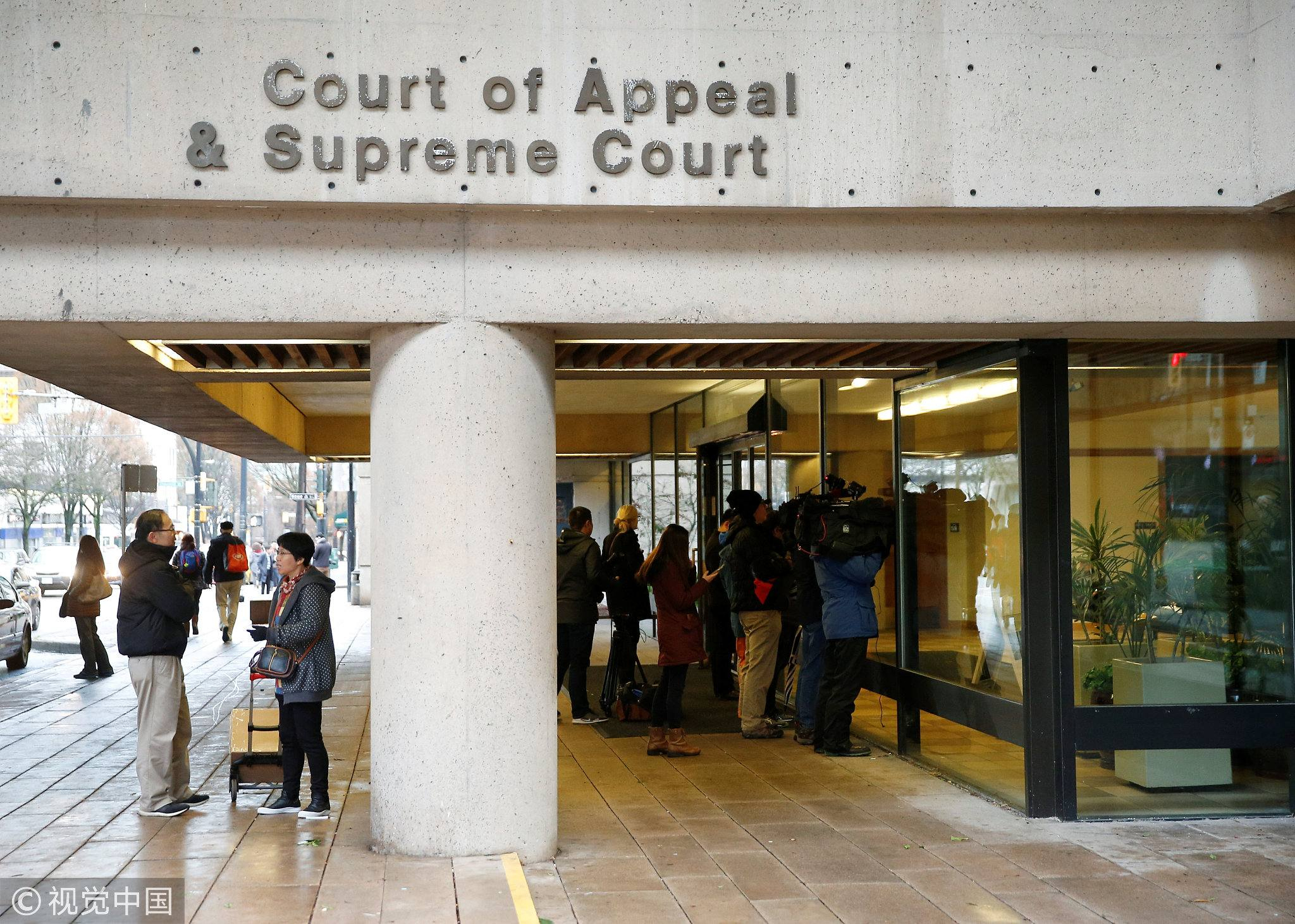
Opinion
13:19, 02-Mar-2019
What's next in the Huawei case?
Kong Qingjiang

Editor's note: Kong Qingjiang is the dean of the School of International Law under China University of Political Science and Law. The article reflects the author's opinion, and not necessarily the views of CGTN
In a statement released on March 1, Canada's Department of Justice declared that they approved the extradition hearing against Huawei CFO Meng Wanzhou.
From the legal point of view, it is this hearing that will determine whether the chief financial officer of Huawei will be extradited to the United States or not.
Soon after the statement was released, the Chinese side responded with an opposing statement. The Chinese government, which has been concerned with the human rights of the Chinese national and the legitimate interests of a Chinese company, "is utterly dissatisfied with and firmly opposes the issuance of Authority to Proceed by the Department of Justice Canada on the case of Meng Wanzhou."

People leave the court registry after the BC Supreme Court bail hearing of Huawei CFO Meng Wanzhou, who was released on a 10 million Canadian dollar bail in Vancouver, British Columbia, Canada, December 11, 2018. /VCG Photo
People leave the court registry after the BC Supreme Court bail hearing of Huawei CFO Meng Wanzhou, who was released on a 10 million Canadian dollar bail in Vancouver, British Columbia, Canada, December 11, 2018. /VCG Photo
Needless to say, it will not be merely a legal hearing, but a political test for Canada and Canada-China relations.
It is too early to predict the exact result of the hearing.
However, it seems a little bit bizarre when the Canadian Justice Department stated the hearing "is neither a trial nor does it render a verdict of guilt or innocence."
From a purely legal point of view, it is hard to believe that such a hearing that will have the effect of exposing a person to criminal prosecution of another country or setting him/her free – even where the person is innocent – can be downplayed as such.
As a matter of fact, the words of the Justice Department seem to contravene with the double criminality doctrine.
Under the Canadian Extradition Act and the U.S.-Canada Extradition Treaty, the conduct for which extradition is sought must also be considered criminal in both the United States and in Canada.

Members of the media wait at an entrance to the BC Supreme Court after the bail hearing of Huawei CFO Meng Wanzhou, who was released on bail, in Vancouver, British Columbia, Canada, December 11, 2018. /VCG Photo
Members of the media wait at an entrance to the BC Supreme Court after the bail hearing of Huawei CFO Meng Wanzhou, who was released on bail, in Vancouver, British Columbia, Canada, December 11, 2018. /VCG Photo
In other words, Canada must review the alleged conduct and determine whether it could have resulted in a jail sentence of one year of more if it had taken place in Canada.
While it is understandable that Canada has juxtaposed itself in a difficult situation when it took the action to detain Meng at the request of the U.S., the words of the Justice Department can be only interpreted that the Canadian authorities are somewhat an attempt to distance itself with this political dilemma.
Canada still seems to be trying not to infuriate China, while it disregards the solemn demand and vehement diplomatic intervention of China which has seriously poisoned the bilateral relationship between Canada and China
China has viewed the case of Meng as political persecution against a Chinese high-tech enterprise in the form of disguised legal proceedings.
Against this backdrop, the above-said Canadian attempt, unfortunately, is likely to be futile. It is almost certain that if as a result of the Canadian action, Meng is ultimately extradited from Canada to face prosecution in the United States, it will sink bilateral relations to the bottom.
No one can predict that in this context China will swallow the bitter pill that was prepared by the Canadian authorities.
As the pending hearing is around the corner, it might be helpful to remind the Canadian authorities that the verdict, albeit not recognized by the Justice Department, will not only become a watershed for the fate of Meng, but also for the bilateral relationship between the two countries.
(If you want to contribute and have specific expertise, please contact us at opinions@cgtn.com.)

SITEMAP
Copyright © 2018 CGTN. Beijing ICP prepared NO.16065310-3
Copyright © 2018 CGTN. Beijing ICP prepared NO.16065310-3